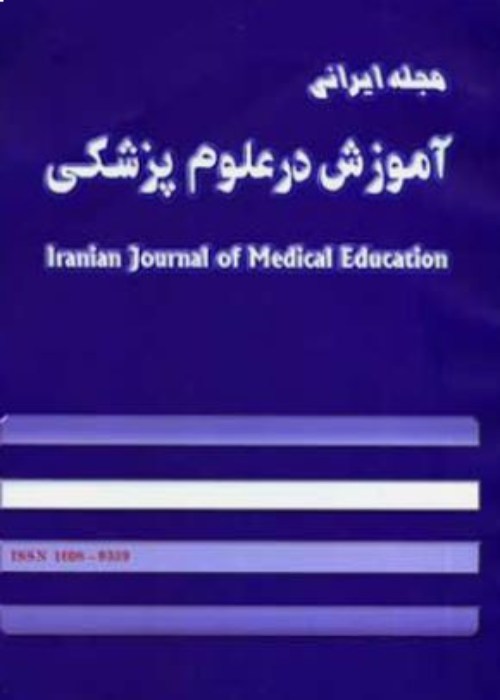Appropriate Strategies to Empower Faculty Members of Medicine in Education: Viewpoints of Faculty Members of Mashhad School of Medicine
Author(s):
Abstract:
Introduction
Understanding the process of empowerment and promoting universities’ capabilities to create an empowered atmosphere are factors affecting functions of education which require identification of the strategies and effective factors in faculty members’ empowerment. The present study was conducted to identify and determine the most appropriate strategies of educational empowerment for faculty members of medicine from the viewpoints of faculty members of Mashhad School of Medicine.Methods
This descriptive cross-sectional study was conducted in 2012 in Mashhad School of Medicine. Initially, a list of appropriate strategies to empower faculty members was extracted from reviewing documents, literature, and experts’ opinions; then, a researcher-made questionnaire was developed based on the list, and after verifying the content validity and reliability by means of test-retest (correlation coefficient at 0.87), was distributed among 96 faculty members (20 faculty members of basic sciences, 76 clinical faculty members) who were selected through stratified random sampling. Each strategy was evaluated as appropriate (3), rather appropriate (2) or inappropriate (1). Data were analyzed using descriptive and inferential statistics (Mann-Whitney and Kruskal-Wallis). Results
The strategies of workshops, observation of the best performance, short-term training courses and fellowship were the most appropriate strategies with means of 2.33, 2.42, 2.51, and 2.59, respectively while monitoring professors’ performance was identified as an inappropriate strategy. Results showed that the strategies of workshops, short-term training courses and fellowship were correlated with the age of faculty members (p<0.05). No significant correlation was found between the strategy of observation of the best performance and faculty members’ age and also between the most appropriate educational empowerment strategies and other individual characteristics of faculty members (gender, type of faculty member, academic ranking, academic degree, type of employment and working experience) (p>0.05). Conclusion
The findings of this study could be helpful for managers, instructors and planners of empowerment courses for faculty members.Keywords:
Language:
Persian
Published:
Iranian Journal of Medical Education, Volume:15 Issue: 2, 2015
Pages:
227 to 239
magiran.com/p1449093
دانلود و مطالعه متن این مقاله با یکی از روشهای زیر امکان پذیر است:
اشتراک شخصی
با عضویت و پرداخت آنلاین حق اشتراک یکساله به مبلغ 1,390,000ريال میتوانید 70 عنوان مطلب دانلود کنید!
اشتراک سازمانی
به کتابخانه دانشگاه یا محل کار خود پیشنهاد کنید تا اشتراک سازمانی این پایگاه را برای دسترسی نامحدود همه کاربران به متن مطالب تهیه نمایند!
توجه!
- حق عضویت دریافتی صرف حمایت از نشریات عضو و نگهداری، تکمیل و توسعه مگیران میشود.
- پرداخت حق اشتراک و دانلود مقالات اجازه بازنشر آن در سایر رسانههای چاپی و دیجیتال را به کاربر نمیدهد.
دسترسی سراسری کاربران دانشگاه پیام نور!
اعضای هیئت علمی و دانشجویان دانشگاه پیام نور در سراسر کشور، در صورت ثبت نام با ایمیل دانشگاهی، تا پایان فروردین ماه 1403 به مقالات سایت دسترسی خواهند داشت!
In order to view content subscription is required
Personal subscription
Subscribe magiran.com for 70 € euros via PayPal and download 70 articles during a year.
Organization subscription
Please contact us to subscribe your university or library for unlimited access!



